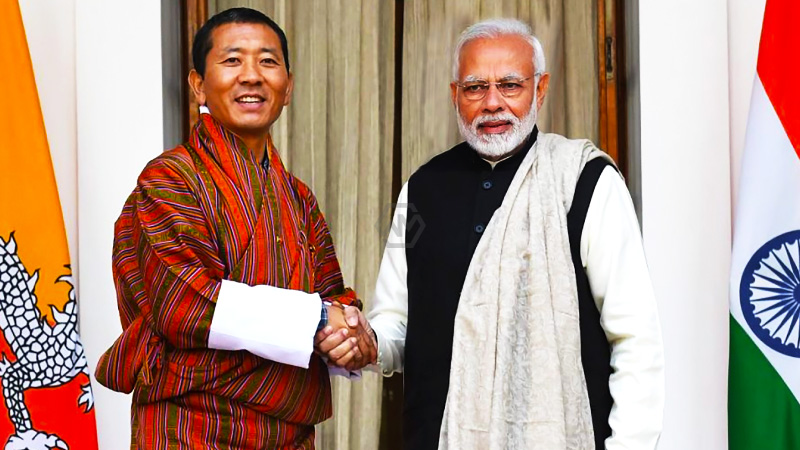Over their Himalayan border, Bhutan and India have a protracted disagreement; Bhutan claims the Doklam plateau, and India backs Thimphu. Doklam is crucial for India’s security because Chinese domination there could endanger the Siliguri Corridor.
Lotay Tshering, the prime minister of Bhutan, has emphasized the nation’s limitations. Bhutan’s Prime Minister, Tshering, expressed optimism that China and Bhutan may define parts of their borders in a few meetings. This has raised red flags in India, as many pundits are worried about the prospect of a swap arrangement including the tri-junction with Bhutan and China.
Border Agreement
Tshering explained his remarks and stated that Bhutan’s attitude had not changed. China thinks that after the border dispute is settled between it and Bhutan, only India would be left.
The long-standing border tensions between India and China are related to the problems with the Bhutan-China border. The de facto boundary between the two nations contains overlapping territory claims and is not entirely delineated.
- Over their Himalayan border, Bhutan and India have a protracted disagreement.
- The long-standing border tensions between India and China are related to the problems with the Bhutan-China border.
- The foreign ministry of India has responded cautiously to the remarks made by the PM of Bhutan.
The de facto boundary extends from northern India’s Ladakh region to Arunachal Pradesh, which the Chinese refer to as Southern Tibet. Bhutanese believe that a settlement with Beijing soon will be best for the country as they observe China’s expanding economic and military power.
In 1949, India and Bhutan agreed to a unique pact that considers Delhi’s security concerns. According to officials, hundreds of Indian soldiers are stationed inside Bhutan and provide training for local forces.
Bhutanese analysts like Wangcha Sangey think that if it weren’t for Delhi allegedly insisting that Bhutan keep Doklam, Bhutan could reach a border agreement with China.
The foreign ministry of India has responded cautiously to the remarks made by the prime minister of Bhutan, Sangey.
Due to the strategic significance of Doklam, India does not want any significant realignments around it; yet, Bhutan may find it challenging to exert pressure on Beijing to renounce its claim. Thimphu is becoming more exposed as tensions between Delhi and Beijing continue.



